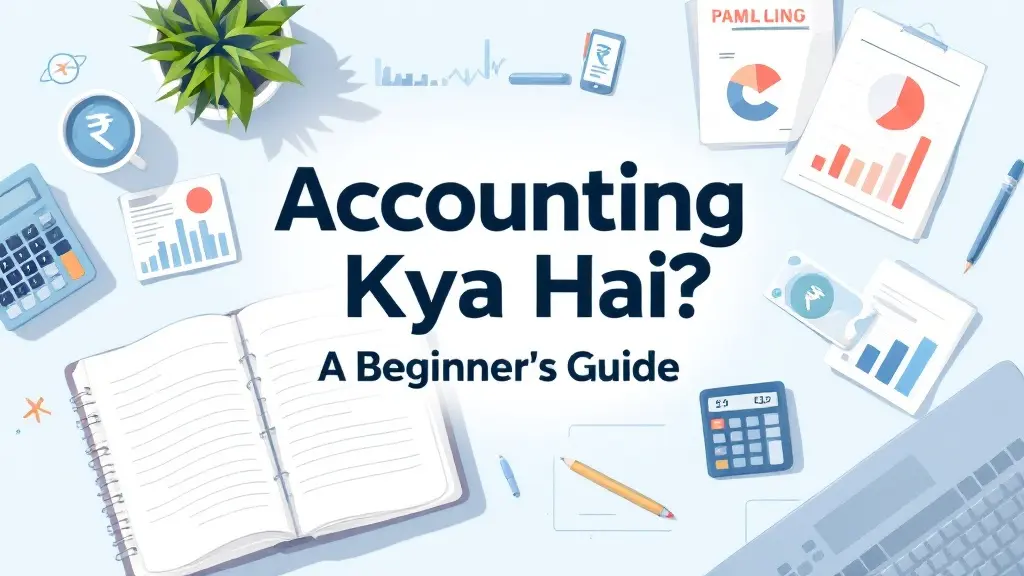CA Exam Details: Everything You Need to Know About Becoming a Chartered Accountant
Table of Contents
Most Read
[fusion_dropcap class="fusion-content-tb-dropcap"]I[/fusion_dropcap]f you’re planning to become a Chartered Accountant (CA) in India, you’re choosing a prestigious and rewarding career path. However, the journey to earning the CA title involves dedication, smart preparation, and a clear understanding of the exam structure.
In this guide, we’ll break down all the important CA exam details you need to know, so you can start your journey with confidence!
What is the CA Exam?
The CA Exam is conducted by the Institute of Chartered Accountants of India (ICAI), a statutory body established under the Chartered Accountants Act, 1949.
The exam is known for its high standards and comprehensive evaluation of a candidate’s knowledge in accounting, finance, law, and auditing.
To become a CA, you need to clear three levels of exams, complete practical training (Articleship), and fulfill other regulatory requirements.
Eligibility Criteria for CA Exam
Before you dive into preparation, make sure you meet the eligibility criteria:
1. CA Foundation Course
- Must have passed Class 12 or equivalent examination from a recognized board.
- Registration with ICAI is mandatory.
- Candidates must complete a minimum study period of four months before appearing.
2. CA Intermediate Course
- Pass the CA Foundation exam, OR
- Direct entry for graduates/postgraduates (Commerce with 55% or Non-Commerce with 60%) or those who have cleared CS Executive/CMA Intermediate.
3. CA Final Course
- Pass both groups of CA Intermediate.
- Complete prescribed practical training (Articleship) for a minimum of 2.5 years before appearing for the final exam.
Structure of the CA Exam
The CA qualification involves three main levels:
CA Foundation
Subjects:
- Paper 1: Principles and Practice of Accounting
- Paper 2: Business Laws and Business Correspondence and Reporting
- Paper 3: Business Mathematics, Logical Reasoning, and Statistics
- Paper 4: Business Economics and Business and Commercial Knowledge
Exam Pattern:
- Papers 1 & 2: Subjective (descriptive) type
- Papers 3 & 4: Objective (MCQs)
CA Intermediate
Groups:
- Group 1:
- Accounting
- Corporate and Other Laws
- Cost and Management Accounting
- Taxation
- Group 2:
- Advanced Accounting
- Auditing and Assurance
- Enterprise Information Systems & Strategic Management
- Financial Management & Economics for Finance
Exam Pattern:
- Subjective format with some MCQs for select papers.
- Students can opt to appear for both groups together or separately.
CA Final
Groups:
- Group 1:
- Financial Reporting
- Strategic Financial Management
- Advanced Auditing and Professional Ethics
- Corporate and Economic Laws
- Group 2:
- Strategic Cost Management and Performance Evaluation
- Elective Paper (e.g., Risk Management, Financial Services and Capital Markets, etc.)
- Direct Tax Laws and International Taxation
- Indirect Tax Laws
Exam Pattern:
- Primarily subjective papers with an emphasis on real-world application.
Important Dates and Registration Timeline
Timing is crucial when planning for the CA exams:
| Exam | Registration Last Date | Exam Month |
|---|---|---|
| Foundation | Jan 1 (for May session), July 1 (for November session) | May, November |
| Intermediate | March 1 (for Nov session), Sept 1 (for May session) | May, November |
| Final | Same as Intermediate | May, November |
Tip: Always check the latest ICAI announcements for changes in dates or exam patterns.
Syllabus Updates You Should Know
ICAI periodically revises the syllabus to keep it aligned with industry needs. Some key updates include:
- More emphasis on practical case studies.
- Addition of topics like GST, International Taxation, and Forensic Accounting.
- Introduction of elective subjects at the CA Final level for specialization.
Staying updated is essential — so regularly visit the ICAI website for official notifications.
How Many Attempts Are Allowed?
- Foundation: No restriction, but registration is valid for three years and can be revalidated.
- Intermediate: 8 attempts (4 years of validity).
- Final: 10 years of registration validity, extendable.
Good to know: There’s no upper limit on the number of attempts within the validity period.
CA Exam Passing Criteria
Passing the CA exam requires:
- Minimum 40% marks in each paper.
- Minimum 50% aggregate marks in each group.
Bonus Tip: If you score 60% or more in any paper, you get an exemption for the next three consecutive attempts in that paper!
Practical Training (Articleship) Requirement
Articleship is a vital part of the CA journey:
- Duration: 3 years under a practicing Chartered Accountant.
- Eligibility: After clearing either one or both groups of CA Intermediate.
- Objective: To gain hands-on experience in auditing, taxation, accounting, and consultancy.
Many students find Articleship a life-changing experience, bridging the gap between academic learning and real-world practice.
CA Exam Fees
Here’s a quick overview:
| Course | Indian Students | Foreign Students |
|---|---|---|
| Foundation | ₹9,000 | $700 |
| Intermediate (Both groups) | ₹18,000 | $1,000 |
| Intermediate (Single group) | ₹13,000 | $600 |
| Final (Both groups) | ₹22,000 | $1,500 |
| Final (Single group) | ₹15,000 | $850 |
Note: Additional fees apply for exam centers outside India.
Tips to Clear CA Exams Successfully
Here are some practical strategies:
- Time Management: Create a daily study schedule and stick to it.
- Conceptual Understanding: Focus on grasping concepts, not just rote memorization.
- Mock Tests: Regularly practice with mock exams to simulate real exam conditions.
- Stay Updated: Amendments in laws and tax rules can appear in exams.
- Balanced Life: Avoid burnout by maintaining a healthy study-life balance.
Career Opportunities After Becoming a CA
Clearing the CA exam opens a world of opportunities:
- Financial Analyst
- Auditor
- Tax Consultant
- CFO (Chief Financial Officer)
- Forensic Accountant
- Management Consultant
- Entrepreneur
Whether you choose to work in a multinational corporation, start your practice, or dive into consulting, the CA qualification ensures a high return on your hard work and dedication.
Final Thoughts
The CA exam is undoubtedly challenging, but it’s equally rewarding. With proper planning, persistent effort, and the right mindset, you can turn this ambitious dream into reality.
Remember, every successful CA was once a student who decided not to give up. Stay focused, stay updated, and most importantly — believe in yourself!
Wishing you the very best for your CA journey!
Visit Our Website : Accounting24.in









